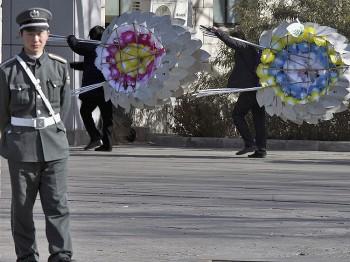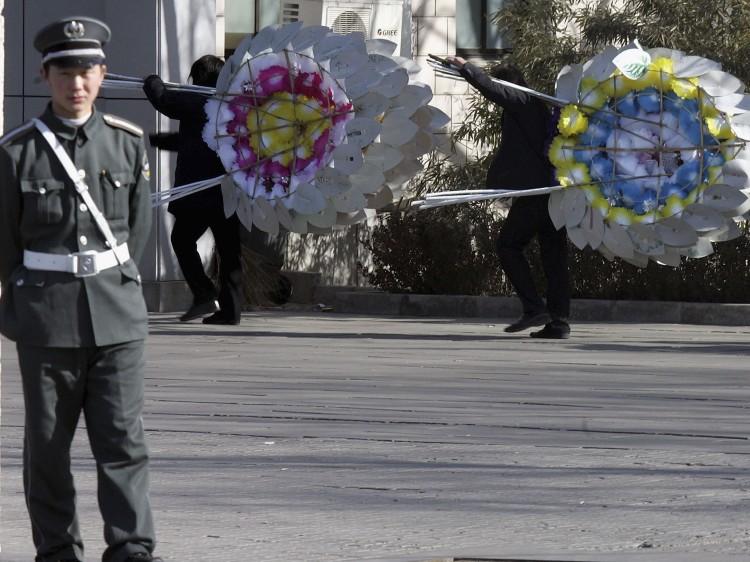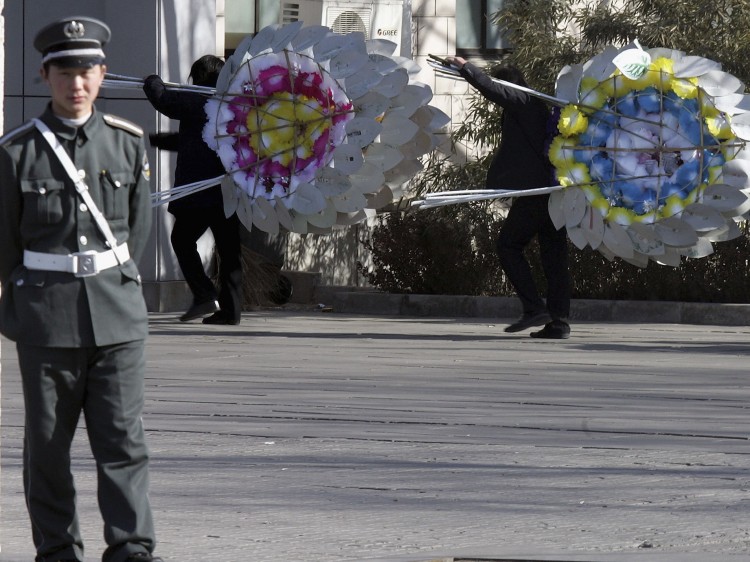The Politics of Death and Power in China
Wu believes that Jiang is almost certainly dead, and that it’s only a matter of time before it becomes official.

POLITICS OF DEATH: Chinese security guard keeps watch at the end of ceremonies for Zhao Ziyang at his funeral outside the Babaoshan Cemetery on Jan. 29, 2005, in Beijing, China. Leaders' deaths have always been approached with a great deal of sensitivity under the CCP. Ng Han Guan/Getty Images
|Updated:
Matthew Robertson is the former China news editor for The Epoch Times. He was previously a reporter for the newspaper in Washington, D.C. In 2013 he was awarded the Society of Professional Journalists’ Sigma Delta Chi award for coverage of the Chinese regime's forced organ harvesting of prisoners of conscience.
Author’s Selected Articles






